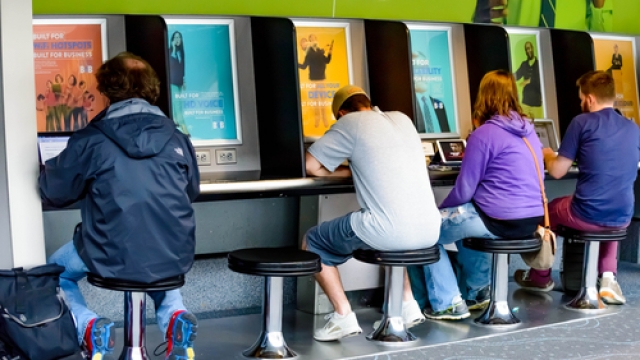If your battery is running low, be aware that juicing up your device at one of those free charging stations could have unfortunate consequences.
The FBI says people should refrain from using them due to the threat of "juice jacking" — a technique used by hackers to spread malware.
"Avoid using free charging stations in airports, hotels or shopping centers," the FBI's Denver bureau warned in a tweet. "Bad actors have figured out ways to use public USB ports to introduce malware and monitoring software onto devices."
The Federal Communications Commission issued a similar warning, saying cybercriminals can use "infected cables" to take control of your device, steal sensitive personal data, or even lock the device until a ransom is paid.
The threat of cyberattacks has increased in recent years, as criminals are becoming increasingly sophisticated in their tactics to infiltrate devices and networks.
Trend Micro, a global leader in cybersecurity, detected a record 146 billion cyber threats in 2022 — a 55% increase from the previous year. The company also reported a 242% surge in blocked malicious files.
To prevent hackers from juice jacking your devices, experts recommend bringing your own charging cables when traveling, using AC power outlets instead of USB charging stations, or using a portable charger to recharge your devices.
You can also purchase a secure charging-only cable from a trusted supplier, which prevents data from being sent or received while your device is charging.



